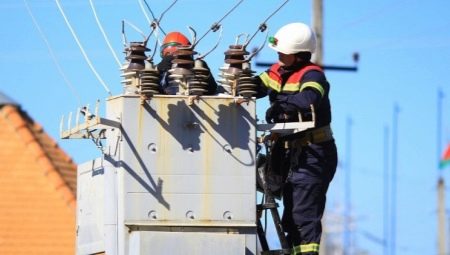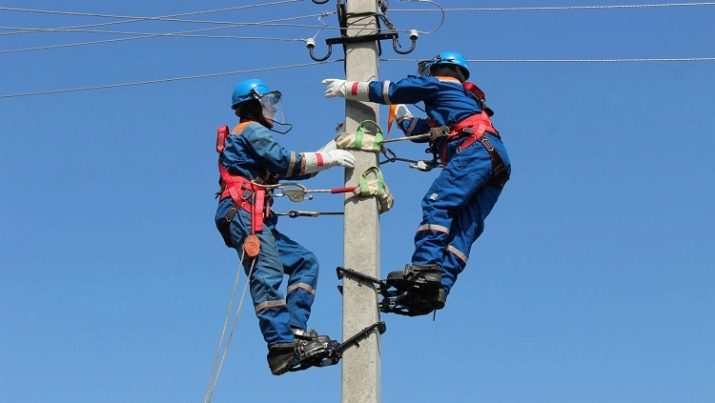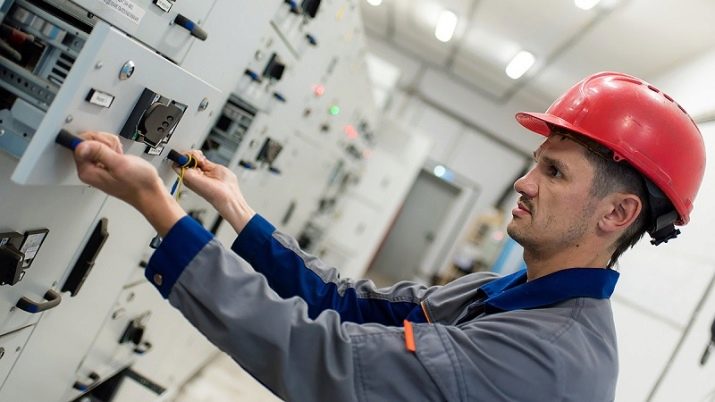All about the profession of an electrician

The article briefly describes everything about the profession of an electrician. It is indicated how a communication specialist, an electrician-electrician differs in cable laying, testing and measurements, as well as other works.

Description
The profession of an electrician is a typical “child of technological progress”. It arose at the end of the 19th century, when the length of practically used power lines was growing rapidly. The power of the power grids was also rapidly increasing, not to mention the variety of devices connected to them. Although technologically this specialization has gone far ahead in comparison with its first days, still it is necessary to solve two main problems: adjustment and repair of electrical equipment and apparatus. The more efficiently specialists cope with such a function, the less often they have to solve the third problem - to deal with emergency situations and their consequences.
The earliest of all was the specialization of an electrician in cable laying, in the repair and maintenance of communication lines. Indeed, several decades before the launch of the first large-scale power plant, telegraph lines were intensively built in different countries. Moreover, since the end of the 1870s, wire telephony has actively entered life, and the first power transmission line began to work only in 1891. Although no one uses the telegraph anymore, and the traditional cable telephone is losing its relevance, communication specialists do not sit without work. You constantly have to make efforts to develop and work normally:
- mobile communication stations;
- Wi-Fi distribution points;
- radio broadcast and TV broadcast antennas, repeaters;
- office and corporate communication systems;
- other devices and complexes using a wired or wireless connection.

What is not less important, you have to perform your tasks quickly and accurately. Even an extra minute, when someone cannot use the connection normally, has a very high price, sometimes measured not only in money, but also in reputation, health and even life. An equally important role in the modern world, however, is played by the test and measurement electrician. He checks how certain trunk and internal sections of power grids work. Since they are almost always under high voltages, special approval and special equipment are required to operate.
The composition of the tests carried out is determined not only by the type of networks or devices, but also by the discharges of the fitters themselves. The test procedure often involves the application of high voltage, sometimes even exceeding design values. At such a moment, it is possible to find out how the highway itself works and whether the means of protection are reliable. A significant part of the work, as it is easy to understand, takes place in the open air, and sometimes even at a height. It is also common to travel or go to remote, hard-to-reach places.
The distribution network operator is the one who works to reduce the need to call for repair and emergency services. He will have to serve not only the main lines, but also:
- distribution areas;
- transformer substations;
- isolation and lightning protection means;
- structural supports of networks.
Electricians of automation (dispatching equipment and teleautomatics) are of great importance in the industry. They do a variety of jobs. In particular, it is necessary to regularly pack parts, parts of components, paint them before long-distance transportation.
These specialists also have special categories that determine their qualifications. The list of required knowledge and skills can always be found in regulatory documents.

Job description
Responsibilities
Anyone who holds the position of an electrician for the maintenance of electrical equipment must certainly know:
- fundamentals of electrical engineering;
- device of various types (models) of electric motors and installations;
- principles and basic diagrams of electrical machines;
- arrangement of control systems and emergency shutdown;
- electrical and fire safety measures;
- device and methods of using measuring equipment;
- the procedure for maintenance work.
The main actions of such employees are:
- receiving assignments (orders) for work shifts;
- repair of power, lighting, sometimes low-current lines;
- daily inspection of entrusted lines, equipment and the surrounding area;
- detecting the causes of malfunctions and eliminating them, if possible in advance;
- maintaining order and cleanliness in the workplace;
- small electrical work when upgrading equipment or its emergency replacement.

If an electrician has a production specialty in working with security and fire alarms of the 4th category, then his functional duties will differ. Such a specialist is obliged to install (mount) and adjust various signaling devices. He determines their composition, quantity and specific optimal models in each case. When choosing and performing work, you will have to take into account humidity, dustiness and other operating conditions. Additionally, you have to:
- maintain and change alkaline, acid and lithium-ion batteries;
- check the performance of individual sensors and signal lines as a whole;
- find out the reasons why the system does not work or often gives false positives;
- advise other people how to use the alarm correctly.
The professional standard has also been developed for electricians in distribution networks.In the current ETKS, they are assigned the code 20.032. Most often, this specialist does:
- basic installation and commissioning work on networks for which it has a permit;
- auxiliary work where there is no voltage tolerance (according to the instructions of admitted people and under their direct supervision);
- maintenance of substation equipment of various capacities;
- repair of distribution systems;
- rigging using simple mechanization;
- cleaning and drying of oils in technological units;
- maintenance of compressor and vacuum equipment.

Rights
An electrician has important professional credentials... In particular, he has the right to make independent decisions within the boundaries of his competence. He also has the opportunity, at the expense of the employer, to take retraining and advanced training courses. Like other employees, there is an opportunity to make suggestions on how to improve the work of the organization, as well as demand the receipt of documents and materials necessary for their activities.
Finally, it is possible and necessary to strive to ensure optimal conditions for their activities.
A responsibility
Service and other sanctions are imposed on electricians if they:
- do not fulfill (as well as incompletely or untimely) their main functions;
- do not comply with the orders of managers that correspond to their competence;
- break the law;
- cause material damage;
- will not comply with work discipline and labor protection standards;
- will begin to work with a deviation from fire standards;
- mislead management about their work and its results.

Knowledge and skills
Regardless of the specific electrical engineering specialization, the requirements are more or less the same. All candidates are expected to understand the general principles of electrical installations and the peculiarities of the operation of certain types of devices. Also important are:
- knowledge of permissible deviations of metering devices, instrumentation;
- possession of fire extinguishing equipment;
- the ability to provide first aid in case of electric shock and burns;
- compliance with a specific electrical safety group;
- the ability to use personal protective equipment;
- power systems management skills;
- possession of related specialties.

Education
The training required for electrical installation technicians is carried out in about 80 educational institutions in Russia. The best positions, according to experts, are:
- Moscow College of Architecture, Design and Reengineering;
- Polytechnic College at the University of Peter the Great;
- Department of secondary vocational education of the Agrarian University of Novosibirsk.
To improve your qualifications, it is better to immediately enter an institute or university for the specialization of an electrical engineer. This will significantly expand the opportunities for professional growth in comparison with special courses. Good preparation is provided by:
- South Ural State University;
- MEI;
- State University of Kurgan;
- DFU;
- Mining University of St. Petersburg;
- OmSTU;
- Kuban Agrarian University;
- Kuzbass Technical University.
How is it different from an electrician?
The difference between these professionals is quite tangible. An electrician mainly works on already created and debugged power lines, local power grids and equipment. But he does not always cope if you need to mount networks or equipment from scratch. In such cases, electricians are attracted.
They put up the supports and pull the wires; only in very rare cases, both profiles intersect.

Place of work
An electrician can work:
- on the repair and adjustment of station equipment of power plants and distribution networks;
- repairing long remote sections of networks (from the power industry);
- in the management company;
- in a construction company;
- at the railway station;
- as part of a telephone operational mobile team;
- in sea and river ports;
- in cable TV organizations;
- at radio stations (both terrestrial and official);
- at industrial and agricultural enterprises.
How much does he earn?
The salary received by electricians depends not only on the specific region of Russia, but also on the level of qualifications. The national average is 30,000 rubles. In the Far Eastern regions and in the Far North, they are paid 70-80 thousand rubles.
Elsewhere, the situation is as follows:
- an electrician who dares to work in Khanty-Mansiysk or in Yakutia can apply for 60,000;
- monthly pay on Sakhalin, in the Krasnoyarsk Territory often reaches 50,000;
- in the municipal economy, payment in any city is only 25-30% higher than the minimum wage;
- the average metropolitan salary in the private sector is from 50 to 55 thousand rubles, in the housing and communal services system - from 20,000 rubles (for specialists of the 2nd category).








